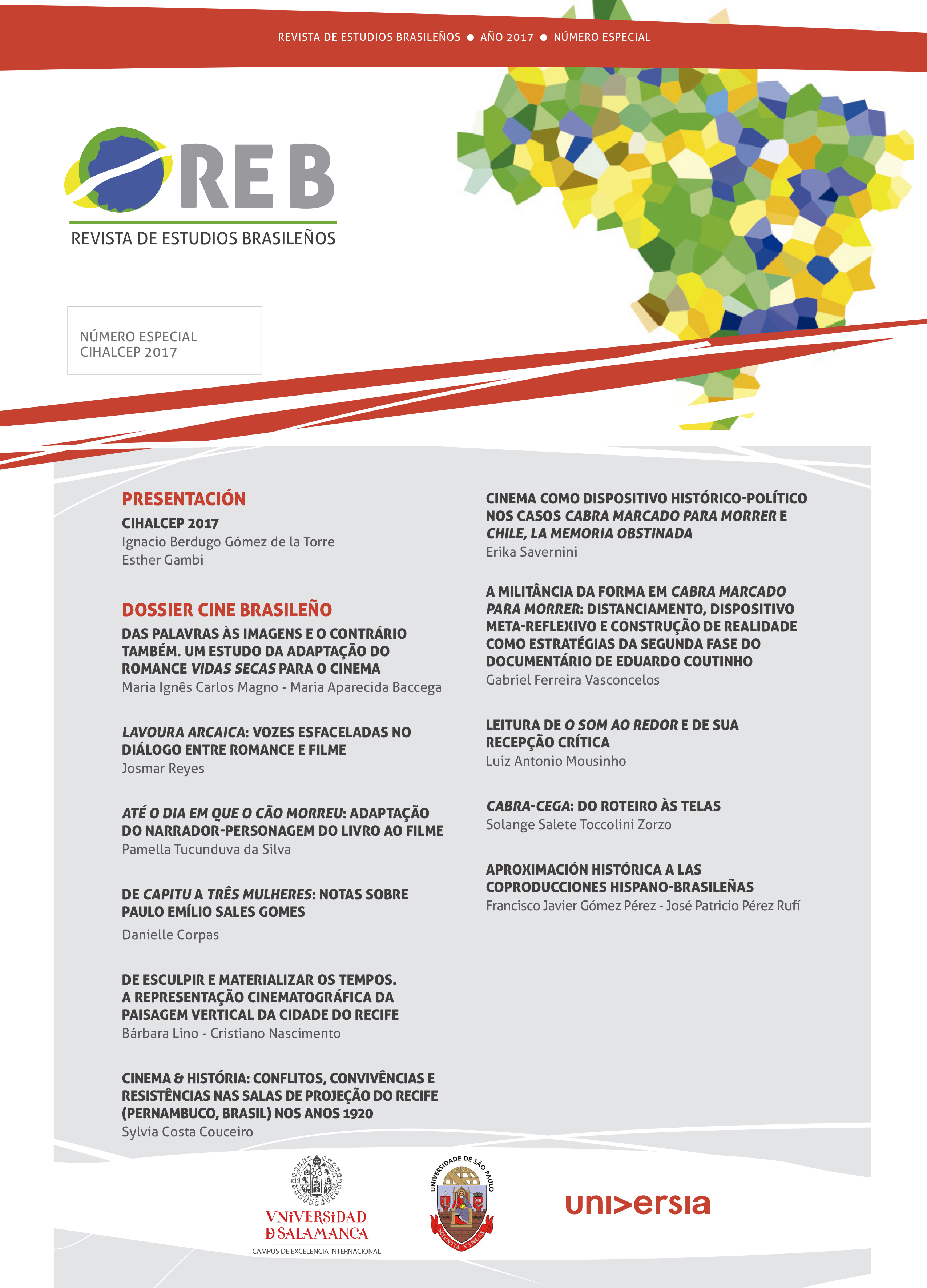Cinema as a historic-politic dispositive in the case of Cabra marcado para morrer and Chile, la memoria obstinada
DOI:
https://doi.org/10.3232/REB.2017.V4.N7.2828Keywords:
Cinema, history, politics, memory, re-signification.Abstract
At the 1960 and 1970s, the Latin American cinema was strongly marked by politics: because of the victorious Cuban Revolution and Salvador Allende’s election, as much as because of the dictatorial regimes established then. The national cinematographies became fortified, proposing their own style of narrative, esthetic and ways of production. In this paper, we analyze two cases of films produced at the exact moment of the coup d'etat in Chile and in Brazil, which were re-signified about 20 years later: Chile, la memoria obstinada, by Patrício Guzmán and Cabra marcado para morrer, by Eduardo Coutinho. Both films register what did happened with the “ordinary” people who lived the moment of the coup and of the production of the originals films, re-signify the historical events and trigger individual memories that became historical-collective memories by the action of the films.Downloads
Download data is not yet available.
Downloads
Published
2017-06-30
Issue
Section
Dossier
How to Cite
Cinema as a historic-politic dispositive in the case of Cabra marcado para morrer and Chile, la memoria obstinada. (2017). Revista De Estudios Brasileños, 4(7). https://doi.org/10.3232/REB.2017.V4.N7.2828


